Here's a nice way of deduplicating records in a table that has an identity column based on a desired primary key that you can define at runtime. Before I start I'll populate a sample data set to work with using the following code:
if exists (select 1 from sys.all_objects where type='u' and name='_original')
drop table _original
declare @startyear int = 2017
declare @endyear int = 2018
declare @iterator int = 1
declare @income money = cast((SELECT round(RAND()*(5000-4990)+4990 , 2)) as money)
declare @salesrepid int = cast(floor(rand()*(9100-9000)+9000) as varchar(4))
create table #original (rowid int identity, monthyear varchar(max), salesrepid int, sale money)
while @iterator<=50000 begin
insert #original
select (Select cast(floor(rand()*(@endyear-@startyear)+@startyear) as varchar(4))+'-'+ cast(floor(rand()*(13-1)+1) as varchar(2)) ), @salesrepid , @income
set @salesrepid = cast(floor(rand()*(9100-9000)+9000) as varchar(4))
set @income = cast((SELECT round(RAND()*(5000-4990)+4990 , 2)) as money)
set @iterator=@iterator+1
end
update #original
set monthyear=replace(monthyear, '-', '-0') where len(monthyear)=6
select * into _original from #original
Next I'll create a Type called ColumnNames:
create type ColumnNames AS table
(Columnnames varchar(max))
Finally I will create a stored proc with the following 3 caveats:
1. The proc will take a required parameter @tablename that defines the name of the table you are deleting from in your database.
2. The proc has an optional parameter @columns that you can use to define the fields that make up the desired primary key that you are deleting against. If this field is left blank, it is assumed that all the fields besides the identity column make up the desired primary key.
3. When duplicate records are deleted, the record with the lowest value in it's identity column will be maintained.
Here is my delete_dupes stored proc:
create proc delete_dupes (@tablename varchar(max), @columns columnnames readonly)
as
begin
declare @table table (iterator int, name varchar(max), is_identity int)
declare @tablepartition table (idx int identity, type varchar(max), value varchar(max))
declare @partitionby varchar(max)
declare @iterator int= 1
if exists (select 1 from @columns) begin
declare @columns1 table (iterator int, columnnames varchar(max))
insert @columns1
select 1, columnnames from @columns
set @partitionby = (select distinct
substring((Select ', '+t1.columnnames
From @columns1 t1
Where T1.iterator = T2.iterator
ORDER BY T1.iterator
For XML PATH ('')),2, 1000) partition
From @columns1 T2 )
end
insert @table
select 1, a.name, is_identity from sys.all_columns a join sys.all_objects b on a.object_id=b.object_id
where b.name = @tablename
declare @identity varchar(max)= (select name from @table where is_identity=1)
while @iterator>=0 begin
insert @tablepartition
Select distinct case when @iterator=1 then 'order by' else 'over (partition by' end ,
substring((Select ', '+t1.name
From @table t1
Where T1.iterator = T2.iterator and is_identity=@iterator
ORDER BY T1.iterator
For XML PATH ('')),2, 5000) partition
From @table T2
set @iterator=@iterator-1
end
declare @originalpartition varchar(max)
if @partitionby is null begin
select @originalpartition = replace(b.value+','+a.type+a.value ,'over (partition by','') from @tablepartition a cross join @tablepartition b where a.idx=2 and b.idx=1
select @partitionby = a.type+a.value+' '+b.type+a.value+','+b.value+') rownum' from @tablepartition a cross join @tablepartition b where a.idx=2 and b.idx=1
end
else
begin
select @originalpartition=b.value +','+ @partitionby from @tablepartition a cross join @tablepartition b where a.idx=2 and b.idx=1
set @partitionby = (select 'OVER (partition by'+ @partitionby + ' ORDER BY'+ @partitionby + ','+b.value +') rownum'
from @tablepartition a cross join @tablepartition b where a.idx=2 and b.idx=1)
end
exec('select row_number() ' + @partitionby +', '+@originalpartition+' into ##temp from '+ @tablename+'')
exec(
'delete a from _original a
left join ##temp b on a.'+@identity+'=b.'+@identity+' and rownum=1
where b.rownum is null')
drop table ##temp
end
Once this is complied, you can delete all your duplicate records by running the proc. To delete dupes without defining a desired primary key use this call:
exec delete_dupes '_original'
To delete dupes based on a defined desired primary key use this call:
declare @table1 as columnnames
insert @table1
values ('salesrepid'),('sale')
exec delete_dupes '_original' , @table1

